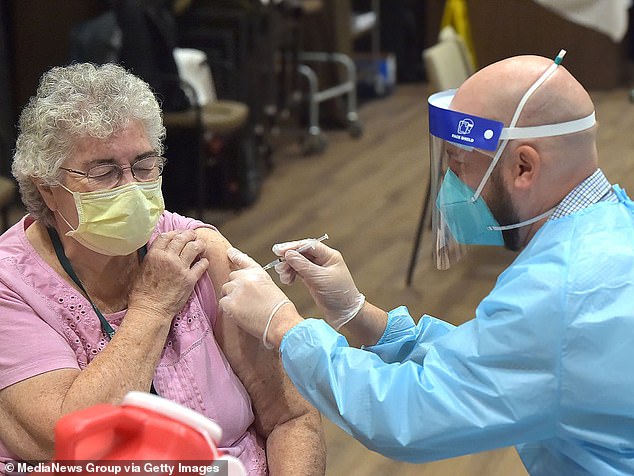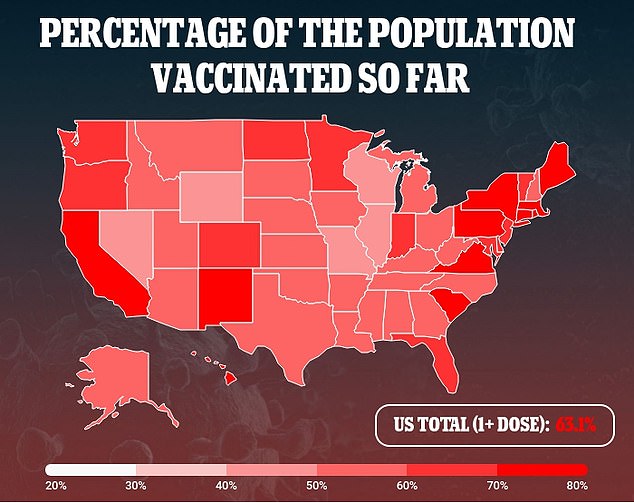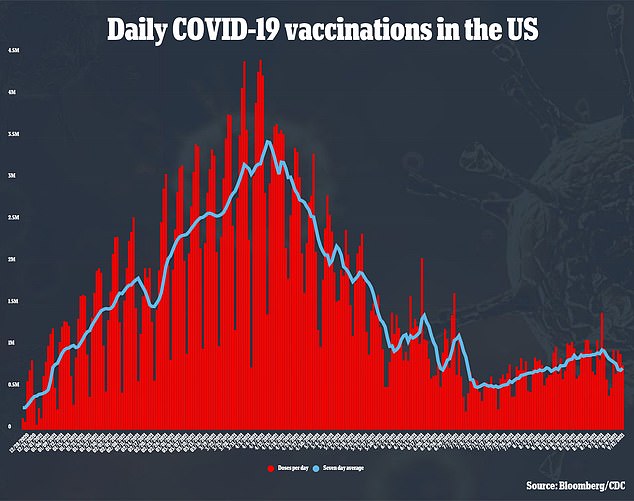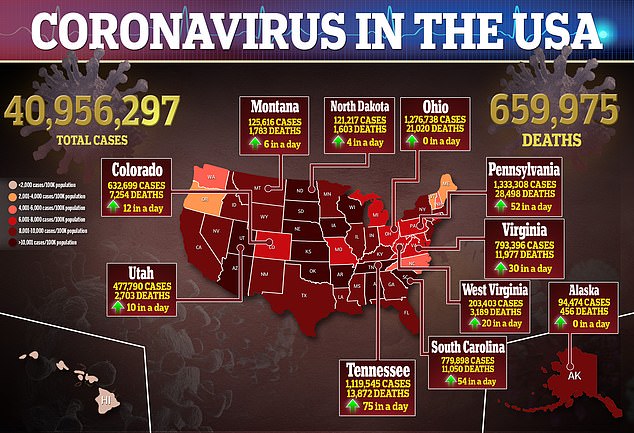Brown University has been awarded 4.9 million by the Centers for Disease Control and Prevention (CDC) to study vaccine effectiveness among seniors.
The two-year project will look at nursing home residents after being fully vaccinated or after receiving a booster shot.
Nursing home residents were among the first to have Covid vaccines made available to them in December 2020, after the facilities quickly became sites of death and despair early in the pandemic.
But officials worry that some early adopters of the vaccine not be as protected as they were just after receiving the shot

CDC officials have awarded Brown University researchers and their Case University $4.9 million to study Covid vaccine effectiveness in seniors. Pictured: CVS Pharmacist William Hallock gives the Pfizer-BioNTech Covid vaccine to Kendal-Crosslands Communities staff member Georgie Stoker in Kennett, Pennsylvania, January 2021
‘Given rising case counts of the Delta variant, we need to know as soon as possible who needs a vaccine booster shot and when they need it,’ said co-lead investigator Dr Stefan Gravenstein, a professor of geriatric medicine at Brown, in a statement.
‘This information on how specific immunity to SARS-CoV-2 infection declines with aging, disease and in long-term care residents is critically important for developing a booster strategy based on real-time data in this population.’
Researchers will look at between 800 to 1,200 nursing home residents who have received one of the Covid vaccines, including a group who will receive boosters.
The team will looked at the residents’ immune response and overall health to see if antibody levels change over time.
Data will be shared with the CDC every six months.
Studies have previously shown that elderly people develop weaker immune responses to the vaccines than younger people,
This is because the immune system begins to break down with age, a phenomenon known as immunosenescence.
What’s more, a large number of severe breakthrough cases – in which a fully vaccinated person contract the virus – are among senior citizens.
The new research will follow previous studies conducted by Gravenstein and Dr David Canaday, a professor in the division of infectious diseases & HIV medicine, at Case Western Reserve University.
Their pre-print study, published in August, looked at blood samples of 120 nursing home residents and 92 health care workers given the Pfizer-BioNTech vaccine.


Antibody levels, including neutralizing antibodies, were found to decline by more than 84 percent over a six-month period.
Additionally, 70 percent of nursing home residents had levels below or just barely detectable after six months compared to 16 percent of people who saw the same thing after two weeks.
Another study published by Gravenstein, Canaday amd Elizbaeth White, an assistant professor of health services, policy and practice, also found seniors mounted a weak immune response.
‘Aside from the obvious value of better understanding who and when to boost against SARS-CoV-2 infection, we’ve also substantially innovated in how to efficiently recruit and immunologically follow a long-term care population,’ Gravenstein said in a statement.
‘This methodological advancement leverages Brown’s strengths in the intersection between biology, aging and public health research.’

Source link : https://www.dailymail.co.uk/health/article-9986835/Brown-University-awarded-nearly-5-million-CDC-study-COVID-19-vaccine-effectiveness.html











